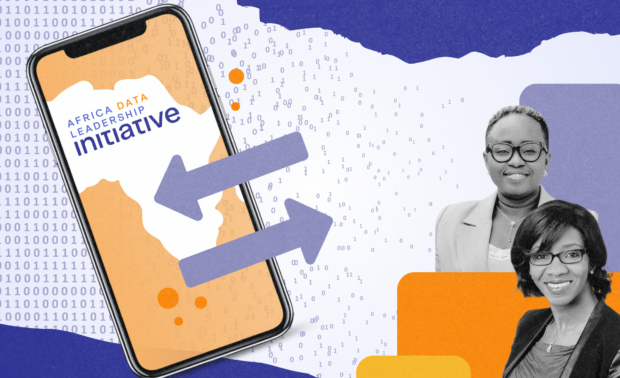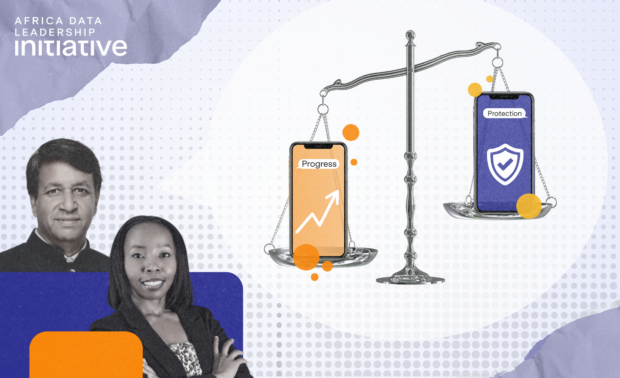Inclusivity in data governance begins with recognizing whose voices have been missing and making space for them at every stage — from design to implementation and oversight. In this way, pursuing data justice is as much about reimaging power as it is about regulating data.
Central to this vision is the need for data systems that do not simply collect information about people, but are shaped with, by, and for people. This involves not only collecting disaggregated and representative data, but also enabling community ownership over how that data is used. Equally important are robust systems of accountability like formal mechanisms that allow individuals to question, contest, and influence decisions that affect their lives. In the absence of such checks, even the best-intentioned systems risk replicating old injustices in digital form.
In Africa’s evolving digital landscape, fairness and equity emerge when governments, grassroots organizations, private sector innovators, and community leaders co-create systems that put people first. This collaborative model recognizes that no single institution holds all the answers. Instead, it’s through shared responsibility that data governance becomes transparent, inclusive, and accountable
Comprised of technologists, activists, and civil servants from various parts of the data ecosystem, our Africa Data Leadership Initiative is an ideal forum to explore inclusive data governance practices.
In our 6th – and final – session of our first 2025 cohort, we were honored to host speakers from two organizations to unpack how they are moving the needle on data justice:
- Ronald Kasule, Co-founder and CEO, Dasuns and ADLI 2024 cohort member
- Akshetha Maithri Ashok, Co-founder and Chief Legal Officer, Sama
Inclusive data practices can mean the difference between visibility and invisibility.
Based in Uganda, Dasuns’ mission is to facilitate social economic development, through innovative technology and advocacy to advance the rights, choices, and opportunities for people with disabilities.
Ronald spoke on the importance of inclusive data systems and explained one recent example of his organization’s advocacy. In 2024, Uganda’s Bureau of National Statistics released the draft census report, where they measured that 5.2% of the population had a disability. But Dasuns knew that number was too low. The organization protested and put pressure on the Bureau to rethink its analysis. The Bureau reviewed and eventually corrected the number to 13.2% – almost 3x more than initially posited.
The difference in numbers may seem marginal, but as Ronald noted, data is political. The smaller the number, the more likely it is that a group of people can more easily be dismissed and marginalized. If the number can be considered negligible, the people reflected in that number may be neglected, with no deliberate intention to plan for them in governance and policymaking.
This example demonstrates how inclusive data governance is not just a technical issue; it is about transforming systems and processes that have historically excluded persons with disabilities from the digital ecosystem. Dasuns’ inclusive data advocacy champions a future where people with disabilities are counted and accounted for in policymaking.
Online dispute resolution is a key safeguard that should be available to all.
Sama is a technology company focused on making online dispute resolution easier for Indians, with the goal of resolving legal disputes digitally, affordably, and with compassion.
As Akshetha delved into, India is home to over 1.4 billion people, 65% of whom live in rural areas. The country has 22 official languages, with hundreds of dialects. For this reason, a one-size-fits-all solution would never work. And this is why inclusive practices are so important.
With such a large and diverse population, the justice system can be equally complex. There are over 50 million cases pending in the Indian courts and the average lifespan of a case takes 13 years. It can be expensive and intimidating for people to pursue a case, which leads to many people choosing not to even try to resolve disputes.
In a country of so many languages, it would be unrealistic to expect everyone to use a platform that is only available in one language. Sama employs lawyers and law students who speak over 31 languages and come from over 40 cities. The platform’s legal notices are translated in real-time in over 12 different languages.
Sama proves that inclusive practices can have amplifying effects. The organization’s commitment to providing legal support to Indians with any mother tongue increased the success and uptake of the platform and increased the number of cases that were being resolved.
Drawing from practical experience and expertise, the discussion highlighted best practices from across the data ecosystem.
Transparency and consent are essential pillars of a good data strategy. Participants stressed the importance of meaningful consent, or making sure people understand what they are signing up for. One data analyst explained that in his work, this involves clear and open documentation on how the data is handled and analyzed, as well as disclosing the potential risks and biases inherent in the analysis. Similarly, one technologist explained that before introducing a digital tool to a community, his organization takes extra care to communicate to community leaders about the purpose of the tool, its potential benefits, and goals. This includes explaining how data is collected, as well as how the community can take ownership and be involved in the co-creation of the initiative. This type of transparency helps to build digital literacy, which supports well-informed and meaningful consent.
Inclusion does not happen by chance – it must be intentionally designed. Creating inclusive data ecosystems will not be achieved by affixing scattered add-ons retroactively. It requires the intention to build products that are fundamentally enablers of dignity and participation for all people. In many contexts, where more people have access to a phone and not a laptop, that will mean mobile-first solutions. One guiding principle Akshetha shared is that if people are unable to use a product, the responsibility lies with the team to rebuild a more accessible product. Similarly, a core effort of Dasuns is to test and advocate for accessibility-friendly data collection tools. A key part of census data, for example, is based on survey data from individuals. Many mainstream survey tools have not been built to be inclusive. Ronald’s team works with tools that have customizable UI and specific embedded features that allow people with disabilities – like vision or hearing impairments – to use it independently.
Developing capacity across institutions and actors is vital for success. Capacity building for stakeholders and implementers allows for more meaningful and responsible participation. Trainings on the value of data, the functioning of data systems, and the practical tools available to support effective and inclusive decision-making can help facilitate broader collaboration. Akshetha explained one practice that helps Sama to prioritize compassion and digital-first thinking in the lawyers and experts they hire. As part of onboarding, legal experts move through a mandatory course on online dispute resolution and then have a behavioral evaluation to check for values alignment. Capacity building and digital literacy education are essential for users as well. Many of the policymakers in the cohort stressed the importance of public awareness campaigns to equip individuals and communities with the knowledge required to navigate complex data environments, protect their rights, and influence policy.
Sometimes, complexity requires simplicity. Technology moves quickly and it can be exciting to build new things. But often, a more basic solution is best. Sama took this lesson from launching their product in rural areas. While the team brainstormed new access points and ways to integrate systems, they found success in something simpler: printed QR codes posted at police stations. Marrying their digital solution with an existing analog workflow people were used to and familiar with proved to be a winning combination.
Inclusive data practices promote digital ecosystems that reflect human values.
Data justice is more than a principle — it’s a practice that places people at the heart of how data is collected, used, and governed. This means ensuring that marginalized voices shape data policy, that communities can contest harmful uses of their data, and that digital governance reflects the diversity of lived experiences.
As the final gathering of the six-week Africa Data Leadership Initiative cohort, this session provided a fitting close, grounded in collaboration and focused on one of the most critical themes of our digital age. Follow along on LinkedIn and stay tuned as we prepare to launch the second cohort of the year, starting in the fall.



